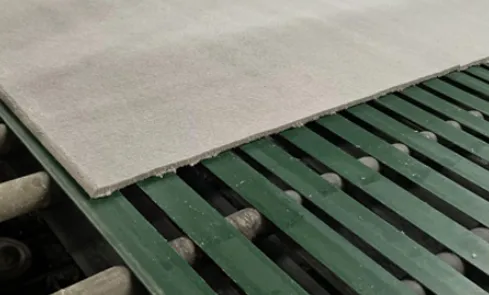Dec . 07, 2024 07:30 Back to list
mineral fiber planks
The Versatility of Mineral Fiber Planks in Modern Construction
Mineral fiber planks are rapidly gaining recognition in the construction industry for their unique properties and benefits. These planks, composed primarily of natural minerals and fiber materials, serve various applications, particularly in commercial and industrial settings. With a growing focus on sustainable building materials, mineral fiber planks have emerged as a practical choice for modern architecture, offering a combination of durability, thermal efficiency, and sound absorption.
Composition and Manufacturing
Mineral fiber planks are typically manufactured using a blend of mineral and organic fibers, including glass wool, rock wool, and other elements derived from naturally occurring materials. The process involves melting these raw materials and spinning them into fine fibers, which are then combined and bonded with various resins to create dense, rigid panels. This manufacturing method not only ensures the strength and stability of the planks but also enhances their fire resistance, making them suitable for a wide range of applications.
Applications in Construction
One of the primary uses of mineral fiber planks is in suspended ceiling systems. Their lightweight nature makes them easy to handle and install, while their acoustic properties effectively reduce noise levels in bustling environments like offices, schools, and hospitals. The sound-absorbing qualities of mineral fiber planks help create a more comfortable and productive atmosphere for occupants, which is particularly essential in spaces where communication and concentration are vital.
In addition to acoustic control, mineral fiber planks also provide excellent thermal insulation. They help regulate indoor temperatures, reducing the need for excessive heating or cooling. This characteristic not only contributes to energy efficiency but also aids in lowering utility costs for building occupants. As energy conservation becomes increasingly important in the face of climate change, the demand for materials like mineral fiber planks is expected to grow.
Fire Resistance and Safety
mineral fiber planks

Safety is a paramount concern in any construction project, and mineral fiber planks excel in this area. These planks are non-combustible and possess a high fire resistance rating, making them suitable for use in commercial buildings, factories, and other structures where fire safety is a critical consideration. By incorporating mineral fiber planks into the design, architects and builders can enhance the overall fire safety measures of a project, providing peace of mind to occupants and investors alike.
Sustainability and Environmental Impact
As the construction industry moves towards more sustainable practices, the environmental impact of building materials is under scrutiny. Mineral fiber planks are often made from recycled materials and can be recycled after their lifecycle, reducing waste in landfills. Moreover, their production process usually consumes less energy compared to conventional building materials like concrete and steel. This makes mineral fiber planks not only an eco-friendly choice but also a responsible one for builders looking to reduce their carbon footprint.
Aesthetic Variety and Design Flexibility
Beyond their practical benefits, mineral fiber planks also offer a wide range of aesthetic options. Available in various styles, colors, and finishes, these planks can complement different design themes, from modern and minimalist to classic and ornate. Architects and interior designers appreciate the versatility of mineral fiber planks, as they can be customized to fit the specific needs and visions of a given project. Whether used in a sleek office environment or a cozy retail space, mineral fiber planks can enhance the overall visual appeal while maintaining functionality.
Conclusion
In conclusion, mineral fiber planks have become a cornerstone of modern construction due to their unique combination of properties. They are lightweight, fire-resistant, and acoustically efficient, making them suitable for a variety of applications. Furthermore, their sustainability profile positions them as a responsible choice in an industry increasingly focused on minimizing environmental impact. As builders and designers continue to explore innovative materials, mineral fiber planks will undoubtedly play a critical role in shaping the future of construction, offering both functionality and aesthetic appeal in one versatile package. With their myriad advantages, it is clear why mineral fiber planks are poised to remain a popular choice in the years to come.
-
Quality Ceiling Trap Doors & Access Panels | Easy & Secure AccessNewsAug.30,2025
-
Durable Ceiling T Grid Systems | Easy InstallationNewsAug.29,2025
-
PVC Gypsum Ceiling: Durable, Laminated Tiles for Modern SpacesNewsAug.28,2025
-
Pvc Gypsum Ceiling Is DurableNewsAug.21,2025
-
Mineral Fiber Board Is DurableNewsAug.21,2025
-
Ceiling Tile Clip Reusable DesignNewsAug.21,2025







